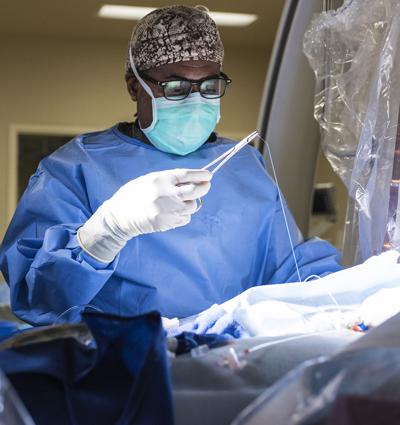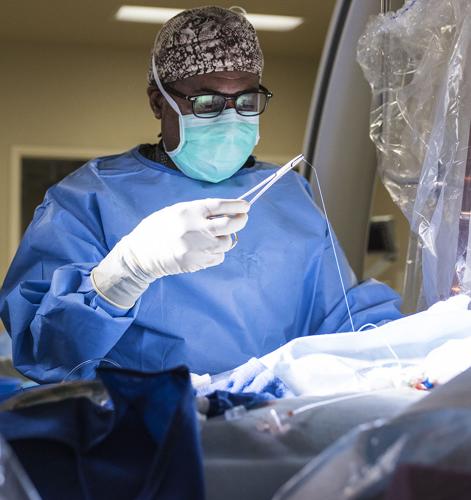Dr. Frank Laws is no stranger to introducing new heart procedures to Glenwood Springs' Valley View Hospital and to Colorado.
In 2007, he performed the state's first robotic-assisted PCI — a procedure that places a stent into the heart of a patient having a heart attack with the help of a robot. And last month, Laws, the medical director of Valley View's Heart and Vascular Center, became the first surgeon in Colorado to perform a laser ablation procedure for atrial fibrillation.
Laws is an electrophysiologist and interventional cardiologist and studied the procedure while in Germany. The laser ablation is common practice in Europe, and was approved by the Food and Drug Administration in 2016.
Laser ablation is used to treat atrial fibrillation in the heart, which can lead to ailments such as arrhythmia, sleep apnea, blood clots, stroke or heart failure.
The ablation scars the tissue in the heart to disrupt faulty electrical signals that can cause irregular heart beats. Laser ablation is one of three types of ablation practiced at Valley View Hospital, along with radio-frequency ablation and cryoablation.
"It allows you see internally and see what you're doing as it's being done," Laws said of the laser ablation. "It's a very common technique used (in Europe). It's something I think we felt that would add to our tool set when taking care of patients."
Laws said the laser ablation has a similar success rate to the other forms of ablation, but is a better procedure for people with abnormal anatomies in the heart region. One example is when a patient has only three pulmonary veins connecting the heart to the lungs instead of four. In this case, the third vein would likely be twice as wide as the other veins and the cryoablation, which uses a frozen balloon to scar the heart tissue, would likely be too small. The laser ablation can help reduce complications due to the visual component, Laws said.
A CT scan roughly three weeks before the procedure helps determine what kind of ablation would be best for the patient.
Between 2.7 and 6.1 million people in the United States suffer from atrial fibrillation, according to the Center for Disease Control. Colorado typically sees a higher amount of cases because of its altitude, Laws said.
Some symptoms include shortness of breath, heart palpitations, fatigue, lightheadedness and sweating in the lower extremities. Laws said that many people may have atrial fibrillation, but are not symptomatic. Surgery is only typically done when a patient has symptoms and has been unsuccessful with medication treatment.
Laws said Valley View is now a leading hospital for treating atrial fibrillation and he typically operates between five and 10 times per month. Laws has monthly clinics in Grand Junction, Meeker and Rangely, among other places and hopes to offer a place to treat the ailments like atrial fibrillation in western Colorado. He started at Valley View Hospital in 2006. The hospital also has two cardiovascular surgeons.
















